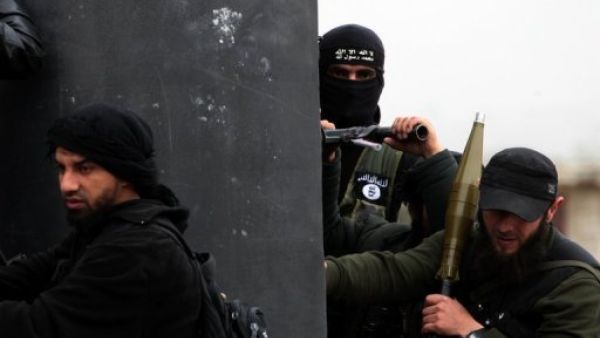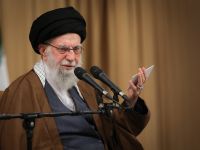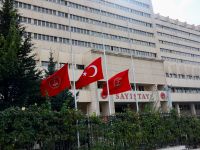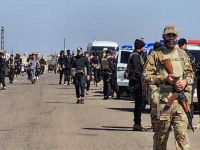Federal officials told the Associated Press Sunday that many Americans are joining the war in Syria, which has raised concerns among many US officials that returnees pose as a security risk to the nation due to their potential exposure and involvement with Al Qaeda-linked groups while abroad.
During a Senate homeland security committee hearing earlier this month, US Senator Thomas Carper stated, “We know American citizens as well as Canadian and European nationals have taken up arms in Syria, in Yemen and in Somalia. The threat that these individuals could return home to carry out attacks is real and troubling.”
Former FBI Director Robert Mueller also shares Carper's concerns, telling ABC news in August that he "[was concerned about] the associations [American fighters in Syria] will make and, secondly, the expertise they will develop, and whether or not they will utilize those associations, utilize that expertise, to undertake an attack on the homeland.”
Current FBI director James Comey also told reporters this month that he worried that Syria would "become a repeat" of Afghanistan in the 1980s.
The State Department does not have any official data on how many Americans are actually fighting in war-torn Syria, but a British Defense Consultant, IHS Jane's, estimates suggest that the number is a few dozen. The FBI has also refused to release information on whether or not it is directing agents to increase efforts to stop Americans en route to Syria.
Earlier this year, three Americans were charged by US officials for their collaboration with Syria's Nusra Front, which is considered a foreign terrorist group under US policy. Another American from North Carolina, Basit Sheikh, was also arrested en route to Turkey due to allegations that he was planning to join Syria's Nusra front as well.
Sheikh, 29, was arrested at the Raleigh-Durham International Airport in early November for his alleged Nusra links. Under US law, it is not illegal for Americans who hold citizenship in another country to fight for that country's military, but citizenship can be terminated if an American serves in a foreign armed force that is considered "hostile to the US."
Before the November arrest, Sheikh had no criminal record, but had been monitored for five months by the FBI due to his online activity that expressed his support for jihad activity in Syria. In August, Sheikh posted a comment to an undercover FBI agent's Facebook page promoting Islamist extremism, and the two developed an online relationship. According to the FBI, Sheikh told the undercover agent that he was planning to go to Syria "to join a brigade in logistics, managing medical supplies."
Sheikh had previously traveled to Turkey in 2012 in the hopes of making contact with folks that could get him into Syria, but said he was "dispirited" and disillusioned from his experience and interactions with individuals who claimed to be part of the rebel, and US-supported, Free Syrian Army.
According to the report, the undercover agent convinced Sheikh to act upon his renewed plans to go to Syria to join the aforementioned brigade by contacting someone from the Nusra group, who was another FBI informant. Sheikh reportedly contacted the informant and bought his one-way ticket to travel to Turkey hoping to make contact with more folks linked with Nusra that could get him into Syria accordingly.
Two federal public defenders who have been appointed to represent Sheikh have been ordered and barred from discussing the case to the public, and a federal magistrate ruled last month that Sheikh should be detained as he represented a "serious risk [to the community if he was freed]."
Sheikh potentially faces up to 15 years in prison as well as a $250,000 fine if he is convicted. His arraignment is scheduled to be held in January next year.
Other arrests like Sheikh's have been made in Chicago in April and in Virginia in September.









